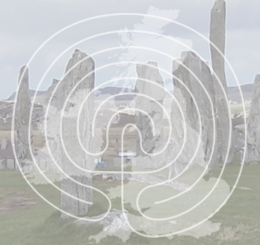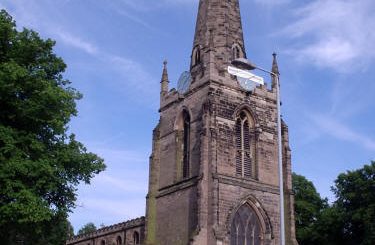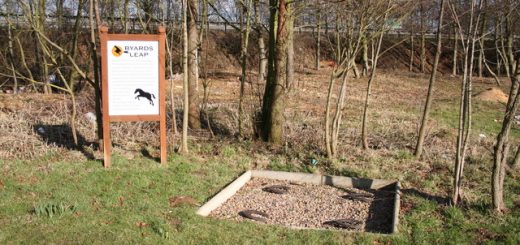The Thirteen Treasures of the Island of Britain
These treasures are ancient magical items of Welsh tradition that are mentioned in 15th and 16th Century manuscripts. Most of the treasures are from and in ‘The North’ of the Island of Britain. The number of treasures is always stated as thirteen, but some later manuscripts mention different treasures (The Mantle of Tegau Eurfron and The Stone and Ring of Eluned the Fortunate), whilst dropping an original treasure and combining the crock and dish of Rhygenydd the Cleric as one item instead of two.
1) Dyrnwyn, gleddyf Rhydderch Hael: White-Hilt, the Sword of Rhydderch Hael ‘The Generous’:
If a well-born man drew it himself, it burst into flames from its hilt to its tip. Everybody who used to ask for it would receive it; but, because of this peculiarity everyone it was offered to used to reject it. Therefore he was known as ‘Rhydderch the Generous’.
2) Mwys Gwyddno Garanir: The Hamper of Gwyddno Long-Shank:
When food for one man was put in it, and then when it was opened again, food for a hundred men would be found within in it.
3) Corn Brân Galed o’r Gogledd: The Horn of Brân Galed of the North:
Whatever drink was wished for, was found in it.
4) Car Morgan Mwynfawr: The Chariot of Morgan the Wealthy:
If a man went in it, he might wish to be wherever he would, and he would be there quickly.
5) Cebystr Klydno Eiddin: The Halter of Clydno Eiddyn:
Which when fixed to a staple at the foot of his bed: whatever horse he might wish for, he would find in the halter the next day.
6) Cyllell Llawfrodedd Farchog: The Knife of Llawfrodedd the Horseman:
This knife would serve for twenty-four men to eat at a table.
7) Pair Dyrnwch Gawr: The Cauldron of Dyrnwch the Giant:
If meat for a coward were put in it to boil, it would never boil; but if meat for a brave man were put in it, it would boil quickly (and thus the brave could be distinguished from the cowardly).
8) Hogalen Tudwal Tutklyd: The Whetstone of Tudwal Tudglyd:
If a brave man sharpened his sword on the whetstone, then the sword would certainly kill any man from which it drew blood. If a cowardly man used the whetstone, his sword would refuse to draw blood at all.
9) Pais Badarn Beisrydd: The Coat of Padarn Red-Coat:
If a well-born man put it on, it would be the right size for him; if a common person, it would not go upon him at all.
10,11) Gren a desgyl Rhygenydd Ysgolhaig: The Crock and the Dish of Rhygenydd the Cleric:
Whatever food might be wished for in them, it would be provided.
12) Gwyddbwyll Gwenddoleu ap Ceidio: The Chessboard of Gwenddolau son of Ceidio:
If the pieces were set, they would play by themselves. The board was made of gold, and the pieces of silver.
13) Llen Arthyr yng Nghernyw: The Mantle of Arthur in Cornwall:
Whoever was under it could not be seen, and he could see everyone.
14) The Mantle of Tegau Eurfron “Gold-Breast”:
This could only be worn by virtuous women, when it would become full-length. However, if a less moral woman wore it, the mantle would become shorter and shorter depending on how faithless she was.
15) The Stone and Ring of Eluned the Fortunate:
Wearing the ring’s stone within the hand with a closed his fist around the stone would conceal the wearer. I.e. concealing the stone conceals the wearer.
Legend has it that Myrddin (Merlin) obtained or collected all of the thirteen treasures, and keeps them in the “Glass Tower” where they will remain forever, or until King Arthur returns. Merlin himself is also said to be sleeping there with the treasures. The Glass Tower was said to have been created by Myrddin on Bardsey Island (Ynys Enlli), which according to Welsh legend is also the burial place of King Arthur.





Re: The Thirteen Treasures of the Island of Britain
8) The whet stone was in the possession of St Tudno on the Great Orme, Llandudno.